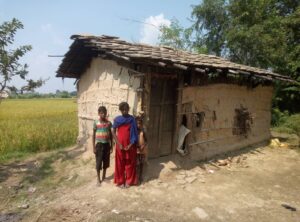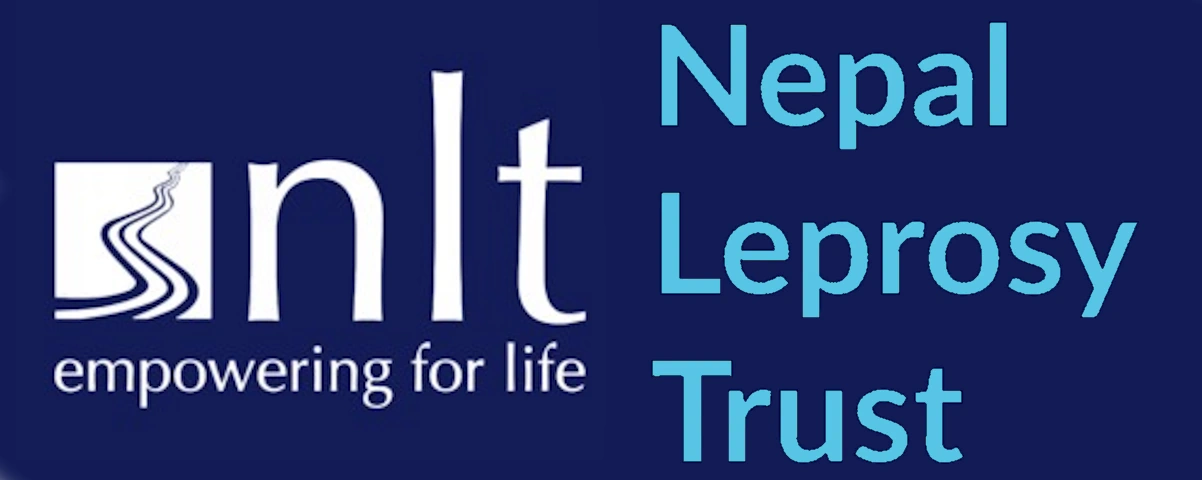NLT’s work goes on… Sangeeta’s story
Those of you who receive our newsletters will know of Sangeeta, the lady that was delivered to the doors of Lalgadh Hospital in July in a critically ill state, having been abandoned a month before by her community and husband because of the damage that leprosy is inflicting on her.
We are seeing more people like Sangeeta again because we are now working in districts of Province 2 that are relatively new to us where we have not had much influence to date. In these places, the stigma and fear of leprosy is still strong, with all the heart-breaking consequences that can result.
This is Sangeeta’s story.
Sangeeta is 37 and is from the ‘untouchable’ Sada caste in a village several hours from Lalgadh. She is a

Sangeeta
mother of four children and has to work hard at farm labouring jobs to earn food for the family, as her husband and her father-in-law spend most of their own earnings on alcohol. Her children are bright and have been doing well at school.
Sangeeta has suffered from leprosy for several years, and is physically damaged by it in her hands, feet and eyes due to not completing a full course of treatment when it was first diagnosed – probably at a local health post. More recently, she received ulcer treatment at Lalgadh in 2020, and was very happy afterwards to return home to being a mother.
At the end of July, she was brought to Lalgadh Hospital, barely alive, with serious infection linked to a bad ulcer, and extremely low haemoglobin levels due to near starvation. She had been forced out of her village a month before by the other villagers due to the nasty ulcer on her leg. Despite being ill, she was made to ‘live’, without shelter or proper food, amongst the burning corpses on the otherwise deserted riverbank, where no one lived. She barely slept for fear. Her husband was told by the villagers to poison her, and then they would allow him and his children to continue to live in the village. To his credit, he refused; but he beat Sangeeta because the villagers beat him for not poisoning her. Probably not seeing any alternative, he left her to die alone.
The children tried to get food for their mother but were refused access to the village shop. They became desperate as they could see their mother was dying. The children are also barred from using the village water supply for drinking or washing, and barred from school.
Sangeeta has now been an inpatient at Lalgadh for two months, and has pulled through the crisis of her illness, but she is ‘broken’. She is grateful for the fact that she is still alive, but her heart-cry is to be with her children and to resume being a mother to them. Her eldest daughter stayed with her at hospital for some time to help care for her, but the daughter has had to return home to look after her younger siblings.

Sangeeta’s son and daughter next to their damaged house
Lalgadh Hospital’s community team has been to visit the village and talk with the leaders there to advocate for Sangeeta and her family. They have also seen the home where she they were living, and it is broken and in a very poor state, with very few belongings and little food. The children were there alone with no food as the father and grandfather were away somewhere drinking. The only local water is at a village tap and the children are not allowed to use that. Our staff gave the family money to buy food. They also talked with the village leaders to discuss the future, and the leaders were still against Sangeeta coming back, and would only consider it if her ulcers were completely healed.
The team have formulated a plan to help Sangeeta re-enter life, but it will not be easy to overcome so much stigma, plus the family are faced with their own serious issues.
Sangeeta herself continues to improve physically but spends a lot of time quietly crying. Our staff spend time listening to her, praying with her, and comforting and encouraging her. Her children came and visited recently, and she was overjoyed to see them after 2 months. Sangeeta regards Lalgadh as a ‘miracle place’, where, for the first time, she has received care and love, and she is grateful for the commitment to help build a future for her.
This is still the reality for many affected by leprosy in the Terai areas, and we have no idea how many quietly ‘disappear’ from life as a result. As we are able, we will establish more self-help groups in these new areas to begin the journey that our existing groups have already made, and gradually reduce the stigma that is still so prevalent. In the meantime, we will continue to serve people like Sangeeta with all the care and compassion that we can muster. Please pray for Sangeeta and her future and for a better ending to this sad story – there are still so many obstacles to overcome for her. It is a hard story to read, but we feel it is important to share it as it encapsulates why it is vital to continue serving people affected by leprosy.
